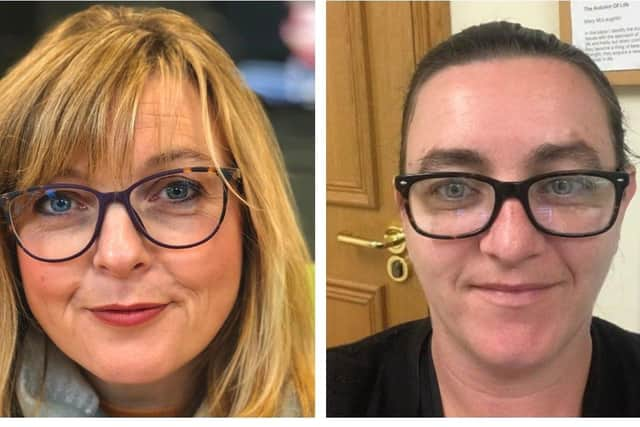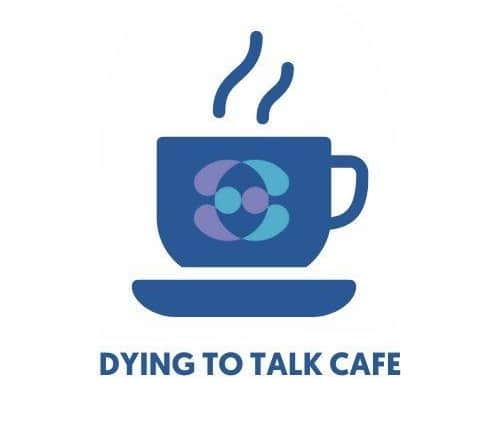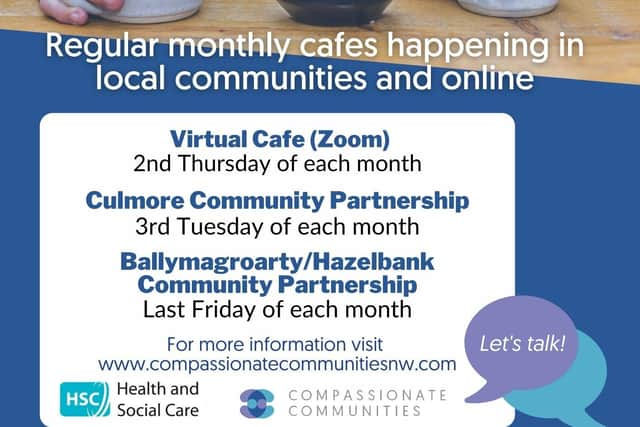Derry’s Dying to Talk Cafes opening up about death
and live on Freeview channel 276
Kathleen Bradley and Sharon Williams say most people have an adverse reaction when they first hear about going to a cafe to talk about death and dying.
They say, however, that this changes after they go to a session and realise that the gatherings are not as morbid as they seem.
Advertisement
Hide AdAdvertisement
Hide AdSharon said: “The whole point behind a Dying to Talk Cafe is to normalise the conversation around death and dying so that we feel a lot more comfortable thinking about our own mortality.


“We also get used to the language around it and feel more confident to make our own plans and to help support people who are going through it.
“That might be people who are living with advanced illness or people who are living with bereavement. You get so socially isolated when you are in these positions because it’s all hidden from view.”
Sharon said that with medical advances, many people are living well into their 80s and beyond.
Advertisement
Hide AdAdvertisement
Hide AdShe said that there were also a lot of people in their 20s and 30s who have never experienced death.


“This means we have disempowered people in how they can manage it or even talk about it. That’s the whole point of the conversation - let’s just chat about it.”
Kathleen said: “There’s always a laugh at these sessions, which you wouldn’t think. ‘Rejuvenating’ is a word that I would use for having the conversation.
“We all want to be immortal but you can accept the reality that there is no choice in whether or not you die but there is a choice in how prepared you can be and who will be with you in the end.
Advertisement
Hide AdAdvertisement
Hide Ad“As a society, we need to be better supporters for people who are living with bereavement and grief.


“For us to be better supporters, we need to be more confident. For us to be more confident, we need to actually open our ears and open our minds to looking into this topic.”
Sharon said: “As much as it’s important for the people who are dying, it’s also important for people who are left behind. They have a journey that could be fraught with complex grief if the topic of dying isn’t discussed. That’s what’s happening as a result of the pandemic, we had no chance to get it right so that’s why they’re talking about a ‘tsunami of grief’ that’s coming and the impact then on mental health.
“Not everyone has to go to counselling if they have the right support in their community - from their family, from their employer and within their schools. How do schools create the environment that the young person can come back in and let the other people in the class know how to talk to that person?”
Advertisement
Hide AdAdvertisement
Hide AdKathleen a said one really important thing about the Dying To Talk Cafes, was that not only does it bring visibility to the topic of death and dying, but it brings visibility to the community of people who are actively experiencing death and dying too.
“There is a whole community of people who are living whilst knowing they are dying. This is far too important for us to ignore this anymore. On so many levels, there’s so many benefits if we just start having these conversations to normalise death and dying for the normal thing it is.”
For more information on Compassionate Communities, visit compassionatecommunitiesnw.com or call Sharon Williams, Project Facilitator on 02871 359888 or 07590354365 or email [email protected].
Anyone in distress can contact Lifeline 24/7 for free on 0808 808 8000 in confidence; The Samaritans 24/7 on 02871 265511 or Freephone 116 123 in confidence.